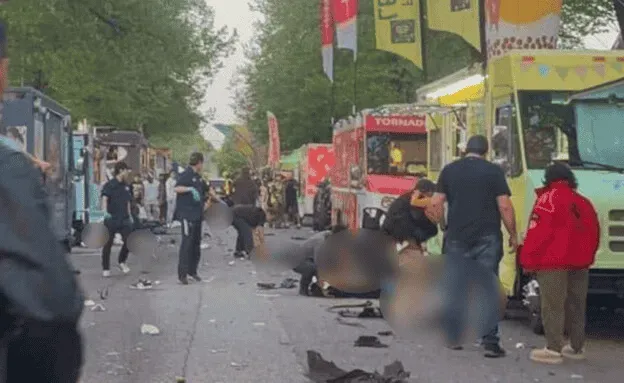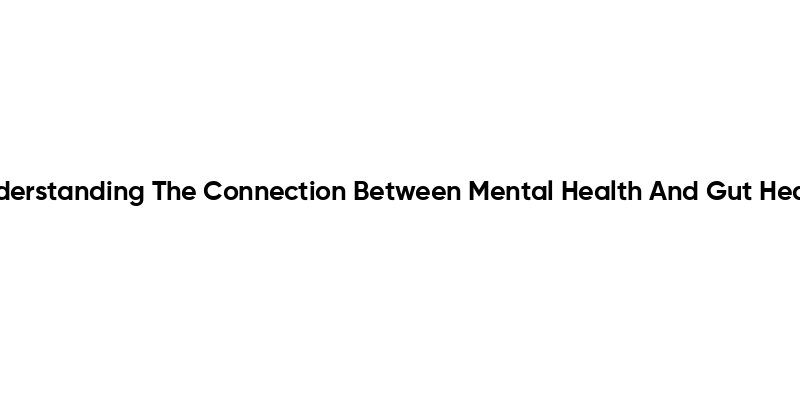The Vancouver car ramming attack has sent shockwaves throughout the city and the nation, marking a devastating chapter in its history. On what was meant to be a joyful celebration during Lapu Lapu Day, a speeding SUV plowed into a crowded pedestrian area, resulting in the tragic deaths of 11 individuals and injuring over 20 more. This senseless act of violence has been described by Vancouver police as one of the darkest days in the city’s history, prompting a community response that reflects the unity and resilience of its residents. Public figures and political leaders have made statements of solidarity with the Filipino community, emphasizing the need for compassion and support during this harrowing time. As Vancouver grapples with the fallout from this tragedy, the discussions surrounding safety and mental health have intensified, with local authorities continuing to investigate the events leading up to the fateful incident.
In the wake of the recent tragic car attack in Vancouver, the city finds itself rallying around those affected by the chaos and grief of that fateful night. This incident, described not just as a car ramming but a profound tragedy for the community, highlights the urgent need for dialogues surrounding public safety and communal resilience. As details continue to unfold about the driver and their past interactions with law enforcement, the Vancouver police have assured citizens that they are addressing mental health concerns comprehensively. The collective response from civic leaders and citizens alike showcases an unwavering commitment to stand together against violence and support the victims’ families. It is through community strength and solidarity that Vancouver will begin to heal from this heartbreaking event.
The Vancouver Car Ramming Attack: A Day of Tragedy
The city of Vancouver faced a devastating tragedy on Lapu Lapu Day, as a speeding SUV plowed into a crowd of festival-goers, resulting in a catastrophic loss of life. The incident, now referred to as the Vancouver car ramming attack, has shocked the community and raised urgent questions about public safety during large events. In the aftermath, officials have confirmed a rising death toll, currently standing at eleven, alongside more than twenty individuals suffering critical injuries. The event, intended to celebrate Filipino culture, turned into a scene of chaos and grief, marking what many are calling the darkest day in the city’s history.
In the wake of this horrific attack, the Vancouver police chief described the incident as a shattering violation of community trust. The attack not only robbed families of their loved ones but also disrupted the collective sense of safety that residents cherish. Police have engaged in thorough investigations, yet they stress that, at this point, there is little evidence to suggest that the act was motivated by any organized agenda or terrorism, leaving many to speculate about the underlying motives of the driver involved.
Community Response to the Vancouver Tragedy
In response to the Vancouver tragedy, expressions of grief and solidarity emerged rapidly from various sectors of the community. Many local leaders, along with citizens, have united in mourning, paying tribute to the victims whose lives were lost in the tragic car attack in Vancouver. Community vigils and memorials have been organized, and citizens have begun sharing their memories of the festival, emphasizing its importance to Vancouver’s diverse cultural fabric. Support for the victims’ families has surged, demonstrating how quickly the community can mobilize in times of crisis.
Moreover, the city of Vancouver has initiated a series of support systems for those affected by this tragedy. Counseling and mental health resources are being made available, acknowledging that the impact of witnessing such violence extends beyond physical injuries. Local institutions, including churches and community centers, are playing a crucial role in providing emotional support and a space for individuals to come together as they process this collective trauma. The ripples of this event will undoubtedly shape the community’s approach to public gatherings and highlight the necessity for increased security measures during large-scale events.
Political Campaigns Recalibrate After Vancouver Car Attack
Following the Vancouver car ramming attack, political leaders found themselves in a challenging position as they had to modify their campaigning strategies at the last minute. The tragedy struck on the last day of campaigning, forcing many politicians to shift their focus away from political rhetoric to sincere condolences for the victims’ families and the Filipino community devastated by the events of Lapu Lapu Day. Rallies were canceled, and public appearances were noticeably more somber, reflecting the mood of the nation in light of this shocking occurrence.
Party leaders, such as the NDP’s Jagmeet Singh and Liberal leader Mark Carney, expressed heartfelt sentiments during their revised itineraries, emphasizing solidarity and support for the affected community. Campaigning was visibly toned down as discussions transitioned from competitive politics to a united front in mourning. The need for compassion overshadowed the traditional political messages, highlighting the tragic impact of violence on the political landscape and the necessity for all parties to prioritize human empathy during such difficult times.
Impacts on Public Safety Discourse in Vancouver
The car attack in Vancouver has sparked a broader conversation about public safety, particularly during large community events. Many residents are questioning their safety at festivals and gatherings, leading city officials to reassess current security protocols. The incident has prompted urgent discussions on whether changes are needed to enhance crowd control measures and emergency response strategies during public events. This tragedy serves as a reminder of the vulnerable nature of communal celebrations, urging officials to prioritize preventive strategies.
In light of this incident, Vancouver police have begun collaborating with community organizers to develop enhanced safety measures and protocols. The goal is to ensure that festival-goers can enjoy events without the fear of violence or unsafe conditions. Local authorities are expected to conduct thorough reviews of past incidents and implement strategies that can prevent tragedies like the Vancouver car ramming attack from occurring in the future, reinforcing the need for a proactive approach to public safety.
Federal Leaders’ Reactions to the Vancouver Car Attack
Federal leaders have publicly expressed their condolences in response to the Vancouver car ramming attack, highlighting the importance of unity during such devastating times. Politicians from various parties took to social media and held press conferences, addressing the profound impact this tragic event has had on the country and specifically, on the Filipino community in Vancouver. Their messages of support serve to not only honor the victims but also to reassure citizens that their leaders are responding to the fears that have arisen from this incident.
As leaders convey their sympathies, they also emphasize the need for government action regarding mental health and public safety. The discussions around the motives of the suspect have reignited conversations about the importance of providing adequate mental health resources to prevent future incidents. Leaders are being called to ensure that their legislative actions align with the needs of affected communities, showcasing that political responses must equally prioritize healing and prevention after events of such magnitude.
The Role of Law Enforcement Post-Tragedy
In the aftermath of the Vancouver car attack, the role of law enforcement has come under scrutiny as communities seek answers about prevention and safety. The Vancouver police have increased their presence at public gatherings while conducting extensive investigations into the circumstances surrounding the incident. As they delve deeper into the driver’s background, the police are also examining how they can better prepare for events that draw large crowds, ensuring that security measures are both effective and sensitive to the spirit of community celebration.
The police chief’s statements regarding the suspect’s mental health history highlight a critical area of concern within law enforcement protocols. Advocates are calling for enhanced collaboration between mental health services and public safety resources, promoting proactive strategies over reactive measures. The tragic outcome of the car attack illustrates a pressing need for a unified approach that combines law enforcement expertise with mental health support, ensuring that community vulnerabilities are addressed holistically.
Community Resilience After the Vancouver Tragedy
In the wake of the attack, Vancouver’s resilience has been tested yet again, as citizens rise to support one another amidst the pain. Community leaders are organizing initiatives aimed at healing and recovery, utilizing both traditional memorials and modern digital platforms to foster unity. This outpouring of support not only honors the victims but also serves as a powerful reminder that while trauma can shake the foundations of a shared community, it also has the potential to bring individuals together in profound ways.
Evidence of this community spirit can be seen in the impromptu gatherings where people share stories, offer prayers, and stand in solidarity with those affected. Local businesses are also stepping up to support victims’ families, emphasizing that acts of kindness can emerge from the darkest times. The future will depend on how well the community integrates these moments of healing into their collective identity and continues to honor the lives lost in the Vancouver car ramming attack.
International Condolences and Solidarity Following the Attack
The impact of the Vancouver tragedy resonated beyond Canada, as international leaders reached out to express their condolences and solidarity with the victims’ families. Statements from global figures such as King Charles and Filipino President Ferdinand Marcos highlighted the universal sorrow felt in response to such senseless violence. This global dialogue not only offers emotional support to those grieving but also fosters a shared commitment to combatting violence in all its forms.
Expressions of sympathy have transcended borders, prompting discussions on global best practices in dealing with public safety challenges. Countries have come together, sharing insights into community resilience and the importance of collaborative response strategies during tragedies. The international community’s support reflects a unified front against acts of violence, reinforcing the notion that such tragedies affect not just local areas but also the collective conscience of humanity.
The Need for Continuous Dialogue on Public Safety
As the investigation into the Vancouver car ramming attack continues, it underscores the vital need for ongoing dialogue about public safety and community well-being. Discussions surrounding the event have opened channels for conversations about the systemic issues regarding mental health, security, and communal violence. Stakeholders are recognizing that addressing these multifaceted issues requires a collaborative approach, engaging community members, local leaders, and law enforcement in discussing concrete strategies for future prevention.
The path forward involves taking the lessons learned from this tragedy and creating a framework that fosters safer public spaces. Local governments are called to take an active role in facilitating these discussions, ensuring that all community voices are heard and valued. By embracing a culture of continuous dialogue around safety, Vancouver can work towards rebuilding trust and resilience while also honoring the memories of those lost in the tragic car attack.
Frequently Asked Questions
What happened during the Vancouver car ramming attack?
The Vancouver car ramming attack occurred during the Lapu Lapu Day festival, where a speeding SUV crashed into a pedestrian-only area, tragically resulting in the deaths of 11 individuals and injuring over 20 others.
Who is responsible for the Vancouver tragedy that involved a car attack?
A 30-year-old man is believed to have been the driver of the SUV involved in the Vancouver tragedy. Authorities have confirmed that he has a significant history of interactions with law enforcement and mental health services.
How did the community respond to the car attack in Vancouver?
In response to the car attack in Vancouver, there was a significant outpouring of grief from community members and leaders. Many events were canceled or modified to honor the victims, and various political leaders offered condolences and support to the Filipino community affected by the tragedy.
What statements have been made by the Vancouver police regarding the attack?
Vancouver police interim chief Steve Rai stated that the car ramming attack has shattered the community’s sense of safety and expressed deep condolences to the families affected. He confirmed that the police are still investigating the motive behind the attack.
Was the Vancouver car ramming attack considered an act of terrorism?
No, the Vancouver police have indicated that the car ramming attack is not believed to be an act of terrorism, though the investigation is ongoing to determine the driver’s intent.
What safety measures might be implemented after the Vancouver tragedy?
In light of the Vancouver tragedy, officials may consider implementing increased security measures at public events, including enhanced crowd control and emergency response protocols to ensure the safety of festival-goers in the future.
How has the Lapu Lapu Day festival been impacted by the Vancouver tragedy?
The Lapu Lapu Day festival was significantly affected by the Vancouver tragedy, with many political campaigns adjusting their itineraries and rally plans to show respect for the victims and their families.
What reactions did political leaders have following the Vancouver car attack?
Political leaders expressed their sorrow and solidarity with the victims of the Vancouver car attack. Many adjusted their campaign activities, focusing on support for the affected communities rather than political campaigning.
Are there updates on the victims of the Vancouver car attack?
As of now, the Vancouver police have indicated that many victims of the car attack are critically injured, and the death toll may rise as investigations continue and more information becomes available.
How have world leaders responded to the Vancouver tragedy?
World leaders, including King Charles and Filipino President Ferdinand Marcos, have expressed their condolences on social media, offering support and sympathy to all those affected by the Vancouver tragedy.
| Key Point | Details |
|---|---|
| Death Toll | The number of fatalities in the Vancouver car ramming attack has risen to 11. |
| Injuries | More than 20 individuals were injured during the incident. |
| Event Timing | The attack occurred during the Lapu Lapu Day festival in a pedestrian-only area on Saturday evening. |
| Response from Authorities | Interim police chief Steve Rai called it ‘the darkest day in our city’s history’. |
| Political Campaign Impact | Federal party leaders adjusted their campaign schedules and focused on honoring the victims. |
| Suspect Information | A 30-year-old man is in custody; police report he has a significant history with mental health issues. |
| International Reaction | World leaders expressed condolences through social media. |
Summary
The Vancouver car ramming attack has shocked the nation, resulting in a tragic loss of life and a significant number of injuries. As the community mourns the loss of 11 individuals and rallies to support the affected families, leaders across the political spectrum have expressed their solidarity and adjusted their campaigning efforts in light of this devastating event. With further investigations ongoing regarding the suspect and the events surrounding the incident, the impact of this tragedy is felt deeply both locally and internationally.



